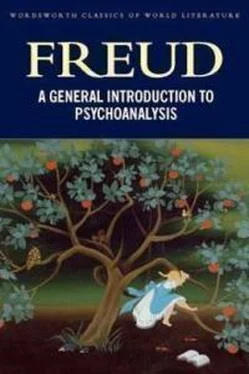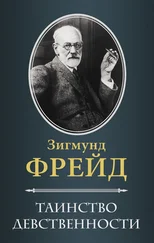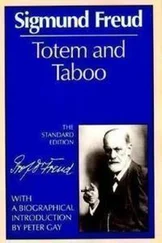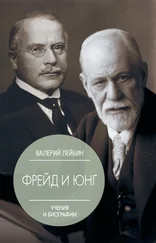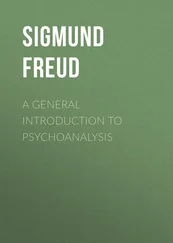Now we return, perhaps with increased faith, to our problem. Apparently it is very probable that the dreamer knows of his dream; the question is, how to make it possible for him to discover this knowledge, and to impart it to us? We do not demand that he give us the meaning of his dream at once, but he will be able to discover its origin, the thought and sphere of interest from which it springs. In the case of the errors, you will remember, the man was asked how he happened to use the wrong word, " vorschwein ," and his next idea gave us the explanation. Our dream technique is very simple, an imitation of this example. We again ask how the subject happened to have the dream, and his next statement is again to be taken as an explanation. We disregard the distinction whether the dreamer believes or does not believe he knows, and treat both cases in the same way.
This technique is very simple indeed, but I am afraid it will arouse your sharpest opposition. You will say, "a new assumption. The third! And the most improbable of all! If I ask the dreamer what he considers the explanation of his dream to be, his very next association is to be the desired explanation? But it may be he thinks of nothing at all, or his next thought may be anything at all. We cannot understand upon what we can base such anticipation. This, really, is putting too much faith in a situation where a slightly more critical attitude would be more suitable. Furthermore, a dream is not an isolated error, but consists of many elements. To which idea should we pin our faith?"
You are right in all the non–essentials. A dream must indeed be distinguished from a word slip, even in the number of its elements. The technique is compelled to consider this very carefully. Let me suggest that we separate the dream into its elements, and carry on the investigation of each element separately; then the analogy to the word–slip is again set up. You are also correct when you say that in answer to the separate dream elements no association may occur to the dreamer. There are cases in which we accept this answer, and later you will hear what those cases are. They are, oddly enough, cases in which we ourselves may have certain associations. But in general we shall contradict the dreamer when he maintains he has no associations. We shall insist that he must have some association and—we shall be justified. He will bring forth some association, any one, it makes no difference to us. He will be especially facile with certain information which might be designated as historical. He will say, "that is something that happened yesterday" (as in the two "prosaic" dreams with which we are acquainted); or, "that reminds me of something that happened recently," and in this manner we shall notice that the act of associating the dreams with recent impressions is much more frequent than we had at first supposed. Finally, the dreamer will remember occurrences more remote from the dream, and ultimately even events in the far past.
But in the essential matters you are mistaken. If you believe that we assume arbitrarily that the dreamer's next association will disclose just what we are seeking, or must lead to it, that on the contrary the association is just as likely to be entirely inconsequential, and without any connection with what we are seeking, and that it is an example of my unbounded optimism to expect anything else, then you are greatly mistaken. I have already taken the liberty of pointing out that in each one of you there is a deep–rooted belief in psychic freedom and volition, a belief which is absolutely unscientific, and which must capitulate before the claims of a determinism that controls even the psychic life. I beg of you to accept it as a fact that only this one association will occur to the person questioned. But I do not put one belief in opposition to another. It can be proved that the association, which the subject produces, is not voluntary, is not indeterminable, not unconnected with what we seek. Indeed, I discovered long ago—without, however, laying too much stress on the discovery—that even experimental psychology has brought forth this evidence.
I ask you to give your particular attention to the significance of this subject. If I invite a person to tell me what occurs to him in relation to some certain element of his dream I am asking him to abandon himself to free association, controlled by a given premise . This demands a special delimitation of the attention, quite different from cogitation, in fact, exclusive of cogitation. Many persons put themselves into such a state easily; others show an extraordinarily high degree of clumsiness. There is a higher level of free association again, where I omit this original premise and designate only the manner of the association, e.g., rule that the subject freely give a proper name or a number. Such an association would be more voluntary, more indeterminable, than the one called forth by our technique. But it can be shown that it is strongly determined each time by an important inner mental set which, at the moment at which it is active, is unknown to us, just as unknown as the disturbing tendencies in the case of errors and the provocative tendencies in the case of accidental occurrences.
I, and many others after me, have again and again instigated such investigations for names and numbers which occur to the subject without any restraint, and have published some results. The method is the following: Proceeding from the disclosed names, we awaken continuous associations which then are no longer entirely free, but rather are limited as are the associations to the dream elements, and this is true until the impulse is exhausted. By that time, however, the motivation and significance of the free name associations is explained. The investigations always yield the same results, the information often covers a wealth of material and necessitates lengthy elaboration. The associations to freely appearing numbers are perhaps the most significant. They follow one another so quickly and approach a hidden goal with such inconceivable certainty, that it is really startling. I want to give you an example of such a name analysis, one that, happily, involves very little material.
In the course of my treatment of a young man, I referred to this subject and mentioned the fact that despite the apparent volition it is impossible to have a name occur which does not appear to be limited by the immediate conditions, the peculiarities of the subject, and the momentary situation. He was doubtful, and I proposed that he make such an attempt immediately. I know he has especially numerous relations of every sort with women and girls, and so am of the opinion that he will have an unusually wide choice if he happens to think of a woman's name. He agrees. To my astonishment, and perhaps even more to his, no avalanche of women's names descends upon my head, but he is silent for a time, and then admits that a single name has occurred to him—and no other: Albino . How extraordinary, but what associations have you with this name? How many albinoes do you know? Strangely enough, he knew no albinoes, and there were no further associations with the name. One might conclude the analysis had proved a failure; but no—it was already complete; no further association was necessary. The man himself had unusually light coloring. In our talks during the cure I had frequently called him an albino in fun. We were at the time occupied in determining the feminine characteristics of his nature. He himself was the Albino, who at that moment was to him the most interesting feminine person.
In like manner, melodies, which come for no reason, show themselves conditioned by and associated with a train of thought which has a right to occupy one, yet of whose activity one is unconscious. It is easily demonstrable that the attraction to the melody is associated with the text, or its origin. But I must take the precaution not to include in this assertion really musical people, with whom, as it happens, I have had no experience. In their cases the musical meaning of the melody may have occasioned its occurrence. More often the first reason holds. I know of a young man who for a time was actually haunted by the really charming melody of the song of Paris, from The Beautiful Helen , until the analysis brought to his attention the fact that at that time his interest was divided between an Ida and a Helen.
Читать дальше
